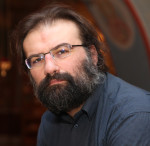Recently I have come across a question, “Why do people, who pray to other gods, get what they want? Does it mean that our Orthodox God satisfies their requests, thereby strengthening their faith in their gods?”

Sergei Khudiev
Well, it happens: non-Christians ask for something within their religions and receive an answer. How can one understand it from a Christian point of view?
This may refer to three different phenomena: supernatural intervention on the part of the true God; intervention on the part of demons; events that are not supernatural interventions at all, but they are interpreted as such by praying people.
Can the true God – God and the Father of our Lord Jesus Christ – graciously answer the prayers of non-Christians? Yes. All people are His creatures, His merciful care extends to all of us, and as the Gospel says, He makes His sun rise on the evil and on the good, and sends rain on the just and on the unjust (Matthew 5:45).
We all, Christians and non-Christians, live, move, and exist by the virtue of God’s merciful love. Once I saw a documentary about an African, who got hooked on some local drug and sank into a completely pitiable state. Like all his associates he was a Muslim and desperately appealed to Allah when seeing an imminent and inevitable death before him. In the end, he stopped doing drugs and fixed his life. If a person begs his Creator for help and receives it, it should not confuse us, even if we do not agree with this person’s ideas about the Creator and His Revelation.
Is the merciful help of the Creator a confirmation that people believe in Him correctly? Of course not. Since God condescends to deluded people, it does not follow that He approves of their delusion. Many of us may recall Him showing concern for us, including His answering to our prayers, when we were still far from the right faith.
On the other hand, it would be reasonable to assume that the Divine intervention will lead a person towards the truth and not from it, and specific circumstances are very important here, for the Divine Providence has an individual approach to each creation.
Other times, people interpret a usual course of events as a result of supernatural intervention.
Let’s say, a Japanese student prayed at a Shinto shrine asking for success in examinations: and she passed them. Yet she did not need any supernatural help: perhaps, she studied diligently.
A more frightening phenomenon is possible, when people ask for help (and receive it) from the fallen spirits. There is Santa Muerte, a cult of Holy Death in Mexico. In the sanctuaries of this cult there is something that from afar may remind of the common in Latin America statue of the Madonna. The only thing is that coming closer one may find that a skull is looking at the idolaters instead of the Madonna’s face.
This cult is popular among drug dealers, thieves, prostitutes, and other representatives of the underworld that live in a constant conflict with the law, among cruelty and debauchery. On the one hand, they seek consolation and help from beyond. On the other hand, they do not want to turn to the traditional Church, because the Church would have asked them first to leave their way of life behind. People talk about the help they received from “Holy Death”: she helped someone find lawyers to escape prison and continue selling drugs; someone begged her to get revenge on offenders from a rival gang, so that they got killed soon during showdown; someone relies on her patronage while transporting batches of drugs to the north, to the United States. Alas, it could hardly be doubted that it is demons, who want people to perish, that are behind the “deity” helping them to follow the path of sin and lawlessness.
Thus, the answers to the prayers of non-Christians do not indicate the genuineness of their beliefs.
However, the following is equally important to us: even though God comes to our aid in all circumstances of our lives, it is not His purpose. Even St. Augustine said that the difference between pagans and Christians is that the entire pagan practice is focused on solving the earthly problems: people ask for health, wealth, success in love and in war from their gods, meanwhile Christians seek eternal and blissful life.
For us, God is not the one, who solves (effectively or not) our earthly problems exactly the way we want and expect, but the One, Who makes us new people, preparing us for eternal joy. For our eternal salvation, God does not need to change the circumstances around us, but ourselves.
Therefore, whether God did it my way, whether He intervened in the situation the way I wanted Him to is not a criterion of truth at all. Faith means that we trust God and want Him to change us and do not try to use Him to our advantage.
Translated by Julia Frolova

















